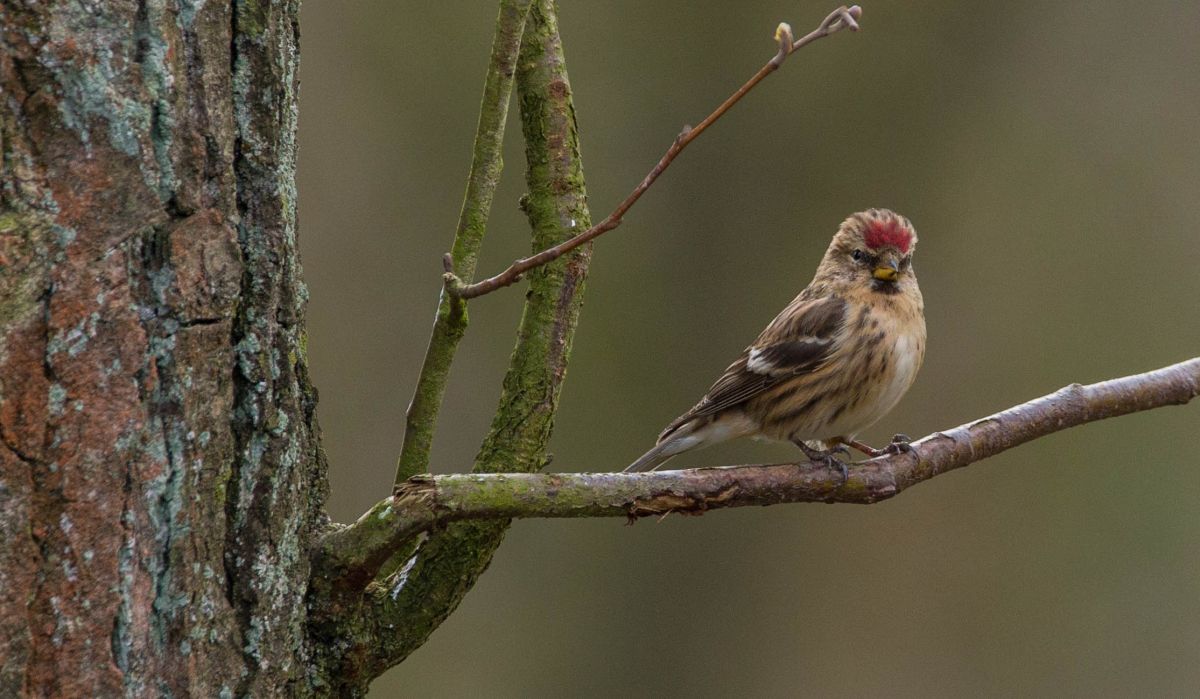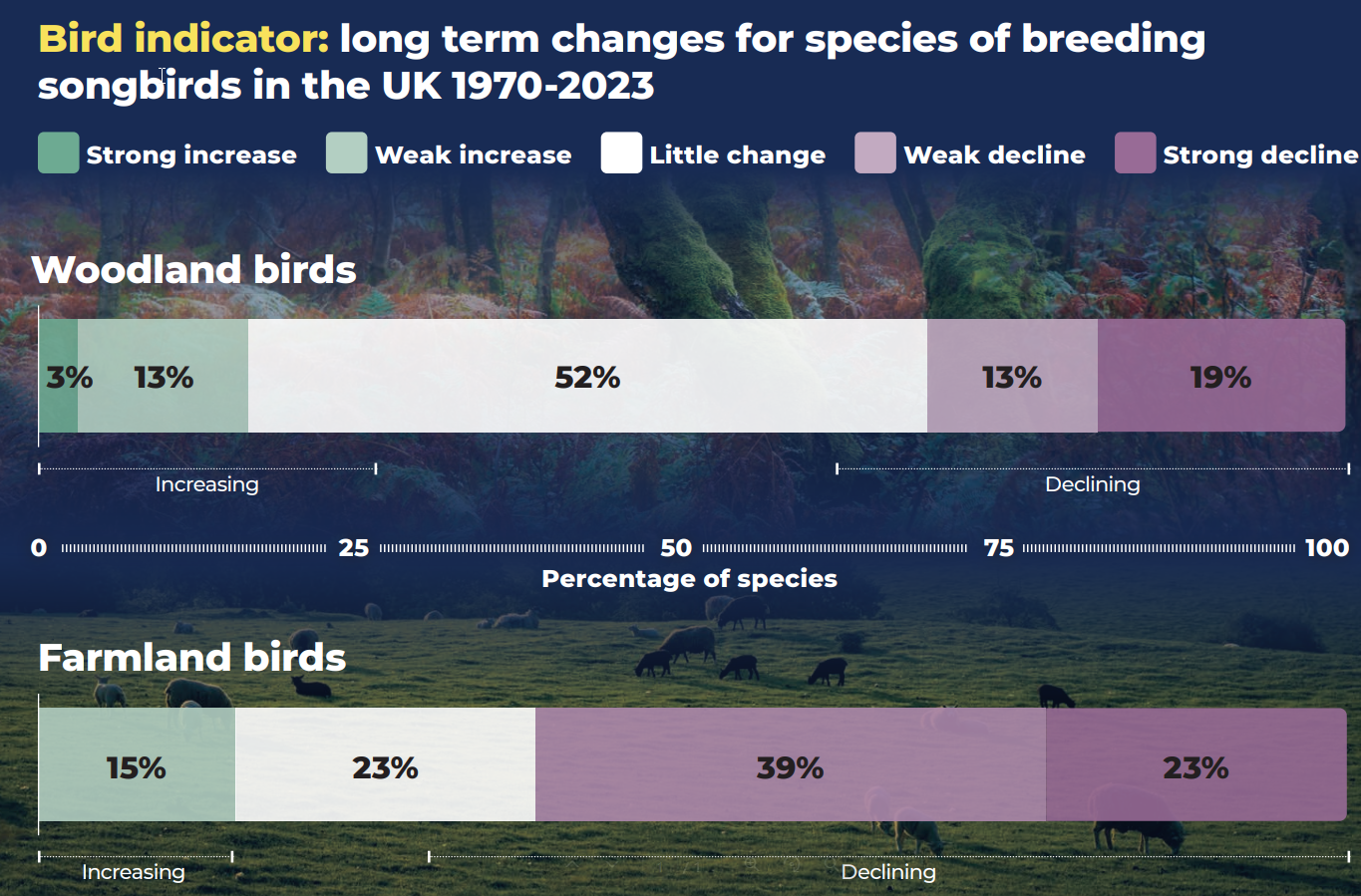DEFRA REPORT ON WILD BIRD POPULATIONS
October 1, 2025

Defra’s Wild Bird Populations National Statistics use “Wild Bird Indicators,” grouping species by the following habitats - farmland, woodland, uplands, wetlands, and coastal areas. Although this helps to track how bird populations are faring across different landscapes over time, the “Wild Bird Indicators” focus on a selected group of species - 19 farmland and 37 woodland species - and may not fully capture the broader biodiversity associated with these habitats.
Farmland and woodland habitats are especially important for songbirds, hosting both generalist species (adaptable to various habitats) and specialists (dependent on specific conditions). Unfortunately, specialists are struggling the most.

Farmland songbirds
Farmland birds have declined by 62% overall, with specialists down 75%. Specialists such as tree sparrows, corn buntings, and starlings have all dropped by over 80%. The yellowhammer has declined by 65%, and generalists like the yellow wagtail and greenfinch have also seen steep declines.
However, there are signs of recovery. Goldfinch numbers have more than doubled, and skylarks and jackdaws are showing modest gains. Targeted agri-environment schemes - like maintaining hedgerows and planting wild bird cover - are helping some species bounce back.
Woodland songbirds
Woodland songbirds have declined by 32% since 1970, with specialists again hit hardest. Willow tits and spotted flycatchers have dropped by over 90%, and redpolls, wood warblers, and tree pipits show similar declines in England.
Generalists have fared slightly better, though bullfinch (-53%) and song thrush (-46%) are notable exceptions. Chaffinches, blackbirds, and whitethroats have seen recent short-term declines, linked to disease.
On the brighter side, long-tailed tits are up 91%, and chiffchaffs, nuthatches, and blackcaps have seen major increases. Pied flycatchers, despite long-term decline, showed a 52% increase from 2023-2024.
Why are these songbirds declining?
References
Explore more of the threats to our songbirds here https://www.songbird-survival.org.uk/who-we-are/the-issues/the-issues.
The SongBird Survival Team
If you are a scientist and would like to shine a light on your recent research covering songbirds here in the UK, then let us know! As a supporter of our charity, if you have ideas for blog posts you would like to see and topics you would like us to cover on #theSBSblog, please contact us at dawn-chorus@songbird-survival.org.uk or our Scientific Research and Impact Manager at emma@songbird-survival.org.uk.
We need your help to fund our crucial independent research and work.
Join our community and receive our exclusive membership benefits.
Receive our monthly e-news and regular updates